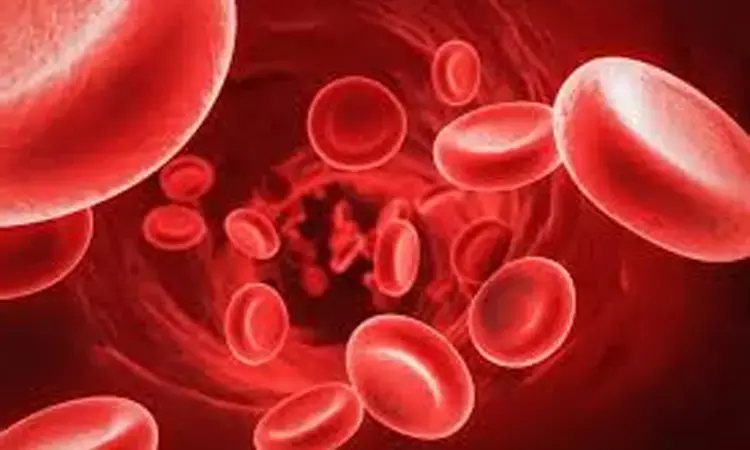- Home
- Medical news & Guidelines
- Anesthesiology
- Cardiology and CTVS
- Critical Care
- Dentistry
- Dermatology
- Diabetes and Endocrinology
- ENT
- Gastroenterology
- Medicine
- Nephrology
- Neurology
- Obstretics-Gynaecology
- Oncology
- Ophthalmology
- Orthopaedics
- Pediatrics-Neonatology
- Psychiatry
- Pulmonology
- Radiology
- Surgery
- Urology
- Laboratory Medicine
- Diet
- Nursing
- Paramedical
- Physiotherapy
- Health news
- Fact Check
- Bone Health Fact Check
- Brain Health Fact Check
- Cancer Related Fact Check
- Child Care Fact Check
- Dental and oral health fact check
- Diabetes and metabolic health fact check
- Diet and Nutrition Fact Check
- Eye and ENT Care Fact Check
- Fitness fact check
- Gut health fact check
- Heart health fact check
- Kidney health fact check
- Medical education fact check
- Men's health fact check
- Respiratory fact check
- Skin and hair care fact check
- Vaccine and Immunization fact check
- Women's health fact check
- AYUSH
- State News
- Andaman and Nicobar Islands
- Andhra Pradesh
- Arunachal Pradesh
- Assam
- Bihar
- Chandigarh
- Chattisgarh
- Dadra and Nagar Haveli
- Daman and Diu
- Delhi
- Goa
- Gujarat
- Haryana
- Himachal Pradesh
- Jammu & Kashmir
- Jharkhand
- Karnataka
- Kerala
- Ladakh
- Lakshadweep
- Madhya Pradesh
- Maharashtra
- Manipur
- Meghalaya
- Mizoram
- Nagaland
- Odisha
- Puducherry
- Punjab
- Rajasthan
- Sikkim
- Tamil Nadu
- Telangana
- Tripura
- Uttar Pradesh
- Uttrakhand
- West Bengal
- Medical Education
- Industry
RBC transfusion after TAVR increases death risk: Circulation

Italy: RBC transfusion after TAVR is associated with increased mortality and acute kidney injury (AKI), according to a recent study in the journal Circulation: Cardiovascular Interventions. The transfusion is associated with 30-day mortality, independent of periprocedural major bleeding and vascular complications.
Periprocedural bleeding in patients undergoing transcatheter aortic valve replacement (TAVR) have reduced owing to improvements in technology and technique. Still, it remains common and red blood cell (RBC) transfusion are administered frequently. Previous studies have shown associations between transfusion and worse outcomes including mortality and AKI.
However, it is unclear whether transfusion is a marker of poor outcomes or a casual driver of these events. But there is no consensus on the benefit of RBC transfusion after TAVR , the issue is not directly addressed in clinical guidelines.
The multicenter Transfusion Requirements in Transcatheter Aortic Valve Implantation (TRITAVI) registry by Marco Zimarino, Institute of Cardiology, "G. d'Annunzio" University Chieti-Pescara, Italy, and colleagues retrospectively included patients after transfemoral TAVR; propensity score-matching identified pairs of patients with and without RBC transfusion.
The primary end point was 30-day mortality; nonfatal myocardial infarction, cerebrovascular accident, and stage 2 to 3 acute kidney injury at 30 days were secondary end points.
Among 2587 patients, RBC transfusion was administered in 421 cases (16%).
Key findings of the study include:
- The primary end point occurred in 4.0% patients, myocardial infarction in 0.4%, cerebrovascular accident in 1.5%, and acute kidney injury in 4.8% cases.
- In the 842 propensity-matched patients, RBC transfusion was associated with increased mortality (hazard ratio, 2.07) and acute kidney injury (hazard ratio, 4.35).
- Interaction testing between RBC transfusion and mortality was not statistically significant in the above-mentioned subgroups, and such association was not documented in the corresponding propensity score-matched cohorts.
- In the multivariable Cox proportional hazards regression model, major vascular complications, major bleeding, and RBC transfusion were independent correlates of 30-day mortality.
"RBC transfusion correlates with increased mortality and AKI early after TAVR and is an independent predictor of 30-day mortality, irrespective of periprocedural major bleeding and vascular complications," concluded the authors.
"Early Adverse Impact of Transfusion After Transcatheter Aortic Valve Replacement: A Propensity-Matched Comparison From the TRITAVI Registry," is published in the journal Circulation: Cardiovascular Interventions.
DOI: https://www.ahajournals.org/doi/abs/10.1161/CIRCINTERVENTIONS.120.009026
Dr Kamal Kant Kohli-MBBS, DTCD- a chest specialist with more than 30 years of practice and a flair for writing clinical articles, Dr Kamal Kant Kohli joined Medical Dialogues as a Chief Editor of Medical News. Besides writing articles, as an editor, he proofreads and verifies all the medical content published on Medical Dialogues including those coming from journals, studies,medical conferences,guidelines etc. Email: drkohli@medicaldialogues.in. Contact no. 011-43720751


